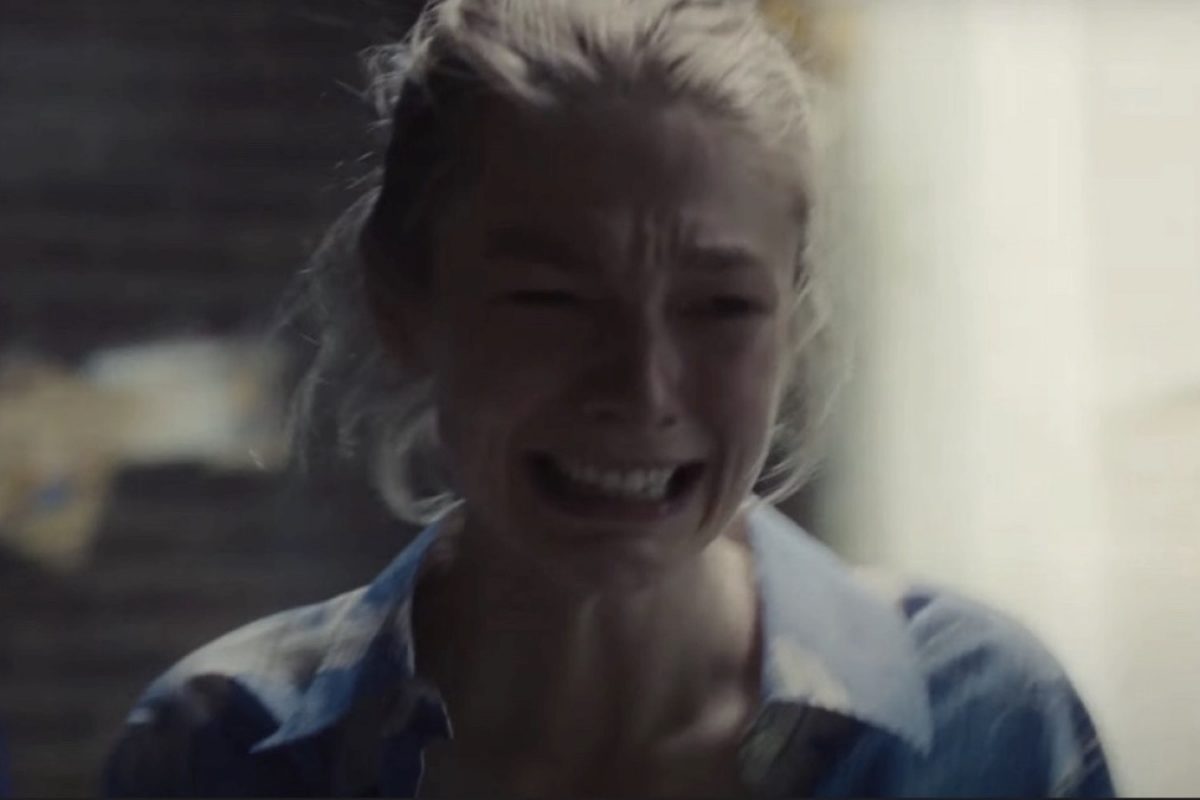The second specially released episode of “Euphoria,” titled “Part 2: Jules— F— Anyone Who’s Not A Sea Blob,” or “Jules” for short, is named for its protagonist. The episode offers an astounding portrayal of a young transgender teen struggling with the meaning of femininity in a masculine-dominated society.
Co-written by Hunter Schafer, who plays Jules, and the director and creator of the show, Sam Levinson, the “Euphoria” episode features a therapy session with Dr. Mandy Nichols (Lauren Weedman), but muddles the lines of fantasy and reality, playing with the display of Jules’ hidden emotions.
Although it follows a similar stylistic approach to the first specially released episode of Rue (Zendaya) merely having a conversation with her sponsor, Ali (Colman Domingo), “F— Anyone Who’s Not A Sea Blob” skips through time to help viewers understand Jules’ perspective on events from the first season. It’s only Jules’ first session with Dr. Nichols, but the wide exploration of topics makes the episode less impactful.
However, the most impactful aspect of the episode is when the therapy session focuses on Jules’ shifting identity as she questions her journey becoming transgender in conjunction with how she has crafted her body to fit a male-dominated world. “I think I’ve framed my entire womanhood around men, when, in reality, I’m no longer interested in men,” Jules says at the beginning of the episode. “What men want is so boring and simple and not creative. How the f— did I spend my entire life building this?” Jules asks.
https://www.youtube.com/watch?v=EQmAmWR05dc
Jules elaborates, expressing that all her life, she’s been trying to “conquer femininity,” but she fears that the opposite has happened: “Femininity conquered me.” She talks of wanting to go off her hormones, motioning to the implant in her arm that stops the kinds of things “men don’t find desirable,” like her voice dropping or her genitals growing bigger. Defining femininity creatively is a strong theme throughout the episode, using the metaphor of metamorphosis to declare that gender is ever-changing, and so are relationships.
Rue and Jules’ relationship is put into perspective. In the first specially released episode, Ali points out to Rue that having a relationship isn’t always best for the individual, especially when they are struggling to discover their strength without it coming from someone else. Similarly, Jules acknowledges the pressure to be the anchor for Rue’s sobriety. But as teenagers, their first love is so powerful that it is difficult to let go.
“Most girls when you first talk to them, they automatically analyze and compare themselves to you. Then they search for where you fit into their hierarchy and treat you accordingly,” Jules explains, then goes on to say that Rue was not like most girls. “She sees me,” she says simply.
Continuing the theme of femininity, love is described as complex when it is tangled up in “firsts.” Rue was the first girl Jules kissed or even had a romantic relationship with, and she was also the first person to push her to grow. Now that they’ve both grown, they are no longer the unknown to each other, but rather something else entirely.
In this context, Levinson and the creators of “Euphoria” use shots of the ocean to portray the expansive emotions Jules is experiencing — which is the most intriguing aspect of the episode’s fantasy element. Intercut with the therapy session are shots of Jules lying on the beach as waves crash over her body, or her moving across the water under dim moonlight.
“I want to be as beautiful as the ocean,” says Jules. “Cause the ocean’s strong as f— and feminine as f—. And like, both makes the ocean the ocean.” For Jules, being trans is a spiritual journey, and she wants to feel alive because of it, never wanting to stand still in her ownership of it. This thread is the strongest and should have been explored further in the episode. Instead, the show layers on so many other conflicts from the first season.
Likewise, the episode continues with the exact opposite approach of “stillness,” instead brandishing visual tricks and intense imagery that, although bold, undercut the critical breakthroughs made earlier within the simplicity of Jules’ explicit dialogue.
What would have strengthened the ocean metaphor and its ties to Jules’ relationship with womanhood, her estranged relationship with her alcoholic mother and the beauty of Rue’s defiance of society’s norms would be building upon the flashbacks that feature the women in Jules’ life.
The ocean is defined as feminine and strong in Jules’ owns words, and it would make sense to keep that thread alive, showcasing related memories with her mom and Rue.
While the episode highlights the toxicity of her past online relationship with Tyler, juxtaposing what was in Jules’ head with reality, it fails to capture the essence of the episode: Jules grounding herself in her identity.
One scene features heated images in the hush of darkness, punctuated by camera flashes that reveal Jules (in her imagination) wearing lingerie and having sex with a fantasy version of Tyler, which is cut with Rue giving her forlorn looks. This is all shown with the underlying queasy knowledge that Tyler is actually Nate, who, in Season 1 of “Euphoria,” is emotionally abusive and manipulative. These sequences provide the opposite of what the ocean represents, showing what Jules meant by “femininity conquered me.”
From an audience standpoint, the mishmash of Jules’ nightmare and fantasy is confusing to read and contains a disturbing undertone. Clearly, Jules is suffering from an array of conflicts mixed with unclear communication from Rue, her parents and Nate. Still, there is an obvious lack of hope for the character, and the overwhelming tirade of visual sequences doesn’t help to ground her or the audience.
We’re lost in Jules’ loss.
With this in mind, there is a beautiful sorrow to the mess that is Jules’ life, portrayed visually on screen through sensual colors and nostalgic lighting. There is no other teen drama on TV like “Euphoria” that powerfully captures the realistic struggle of being transgender, of living with abuse and maneuvering through a modern world that is full of double standards for women, even more so for young girls.
“Euphoria” challenges how we are meant to view ourselves and the characters, forcing us to remove our biased gazes that are filled with ready-made labels and interpretations. Instead, through Schafer’s and Levinson’s gut-wrenching writing, the second specially released episode reveals to us that, like Jules, we’re all performing and “looking at a million layers of other people that [we’ve] grabbed and clung to throughout [our] entire life.” It’s up to us to define who we are, and determine how we will grow into the next definition.

















